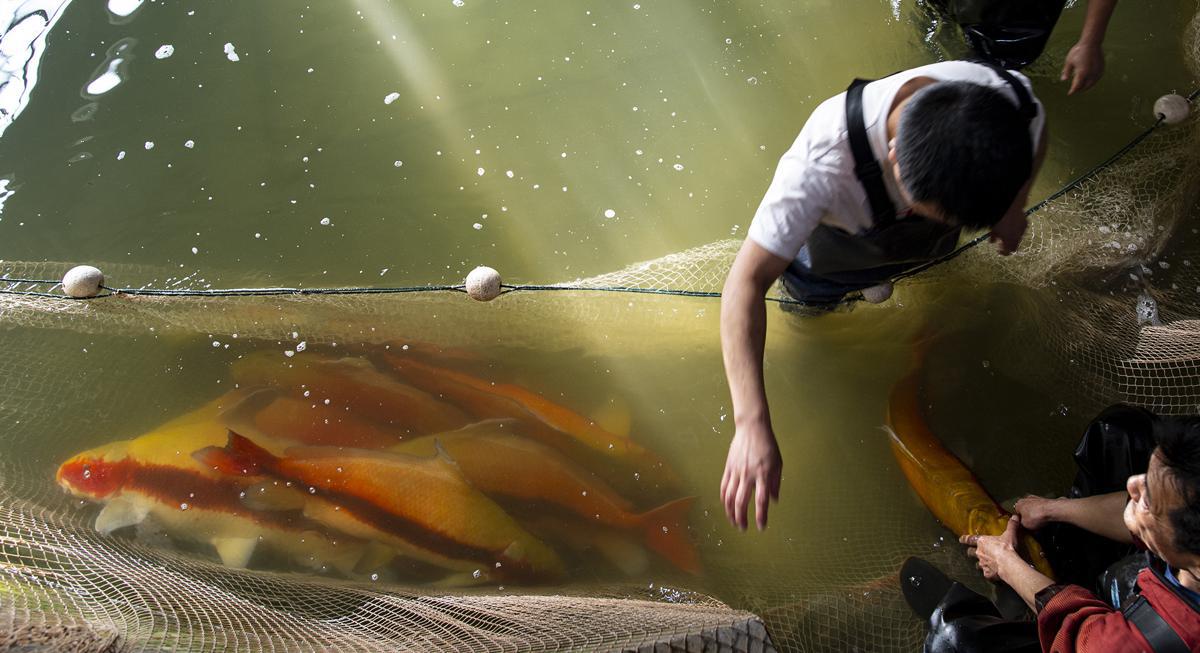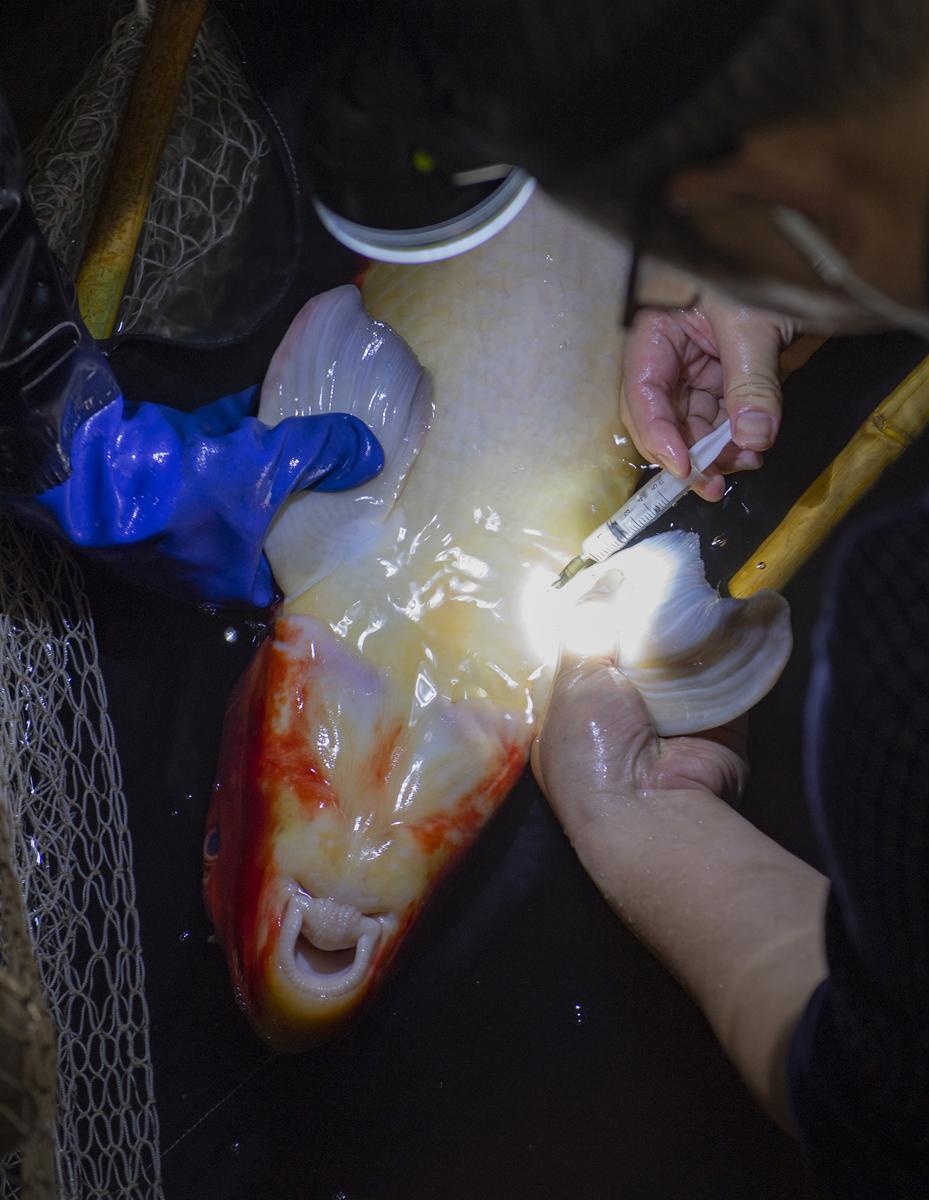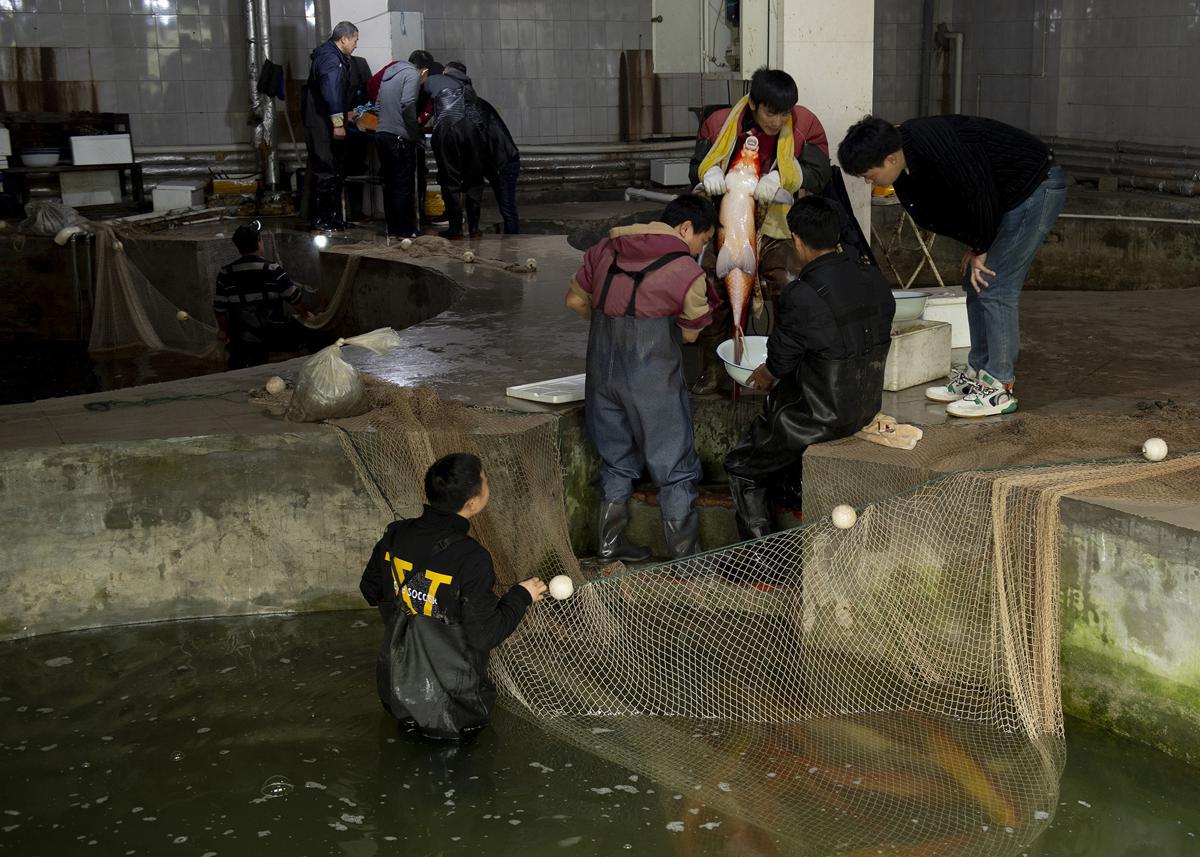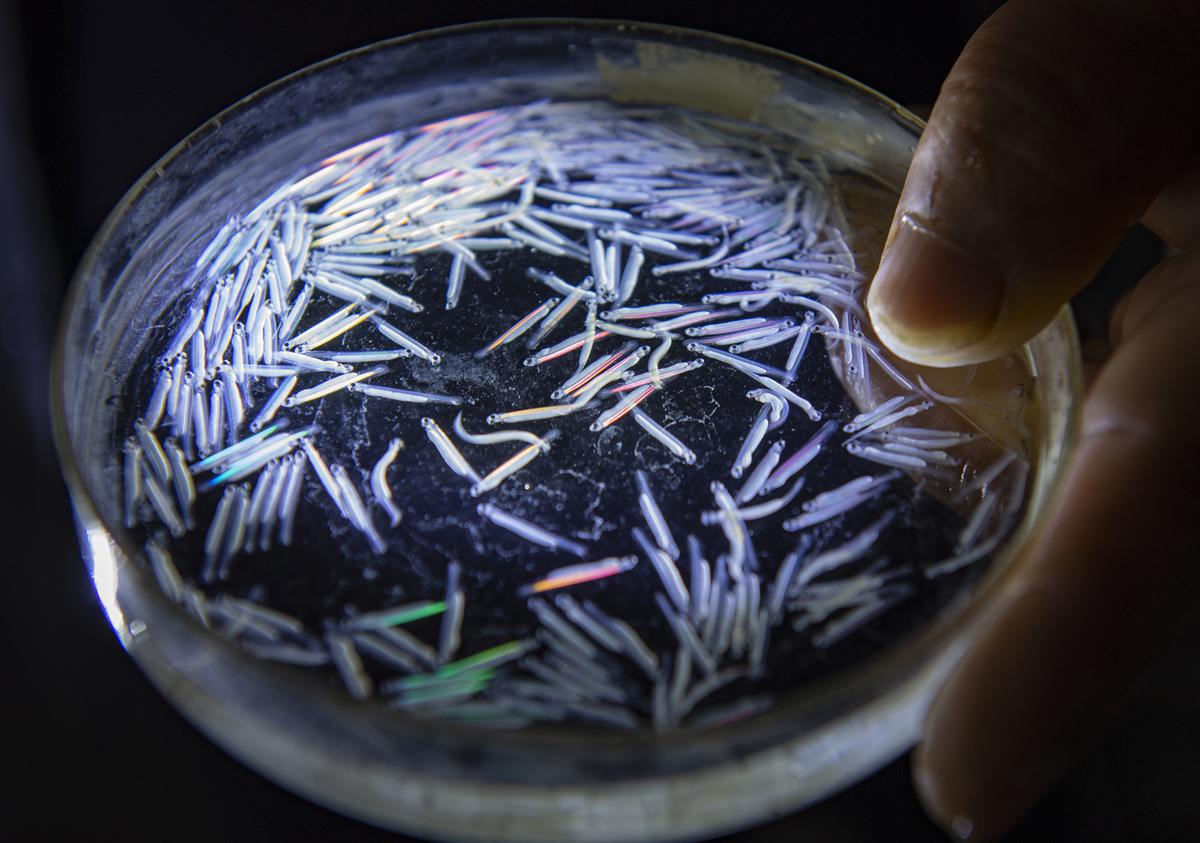April 21, 2022
CHONGQING – The “fish dads” — a group of more than 40 male technicians at Chongqing’s Wanzhou Fisheries Research Institute — have earned their nickname by breeding rare fish beside the Yangtze River.
Stretching over 6,300 kilometers, the Yangtze has rich biodiversity, but overfishing and pollution have threatened aquatic life and depleted fish stocks. Last year, China imposed a 10-year fishing ban to help reverse the trend.

Recently, a group known as the “fish dads” — male technicians at Chongqing’s Wanzhou Fisheries Research Institute — have been working to breed rare fish on the banks of the Yangtze River. In the past decade, some 70 million rare artificially bred fish have been released into the Three Gorges Reservoir area. [Photo by Ran Mengjun/For chinadaily.com.cn]
The institute has incubated nearly 10 million baby Chinese suckers this year — nearly 4 million more than last year — according to its director, Liu Benxiang.

Recently, a group known as the “fish dads” — male technicians at Chongqing’s Wanzhou Fisheries Research Institute — have been working to breed rare fish on the banks of the Yangtze River. In the past decade, some 70 million rare artificially bred fish have been released into the Three Gorges Reservoir area. [Photo by Ran Mengjun/For chinadaily.com.cn]
For now, the institute has reserved more than 3,000 Yangtze sturgeon parent fish. That species is under first-class State protection in China. It is also concerned with the protection of other species — for example, the Yanyuan carp, Onychostoma angustistomata and Percocypris pingi.

Recently, a group known as the “fish dads” — male technicians at Chongqing’s Wanzhou Fisheries Research Institute — have been working to breed rare fish on the banks of the Yangtze River. In the past decade, some 70 million rare artificially bred fish have been released into the Three Gorges Reservoir area. [Photo by Ran Mengjun/For chinadaily.com.cn]

Recently, a group known as the “fish dads” — male technicians at Chongqing’s Wanzhou Fisheries Research Institute — have been working to breed rare fish on the banks of the Yangtze River. In the past decade, some 70 million rare artificially bred fish have been released into the Three Gorges Reservoir area. [Photo by Ran Mengjun/For chinadaily.com.cn]

Recently, a group known as the “fish dads” — male technicians at Chongqing’s Wanzhou Fisheries Research Institute — have been working to breed rare fish on the banks of the Yangtze River. In the past decade, some 70 million rare artificially bred fish have been released into the Three Gorges Reservoir area. [Photo by Ran Mengjun/For chinadaily.com.cn]

Recently, a group known as the “fish dads” — male technicians at Chongqing’s Wanzhou Fisheries Research Institute — have been working to breed rare fish on the banks of the Yangtze River. In the past decade, some 70 million rare artificially bred fish have been released into the Three Gorges Reservoir area. [Photo by Ran Mengjun/For chinadaily.com.cn]


